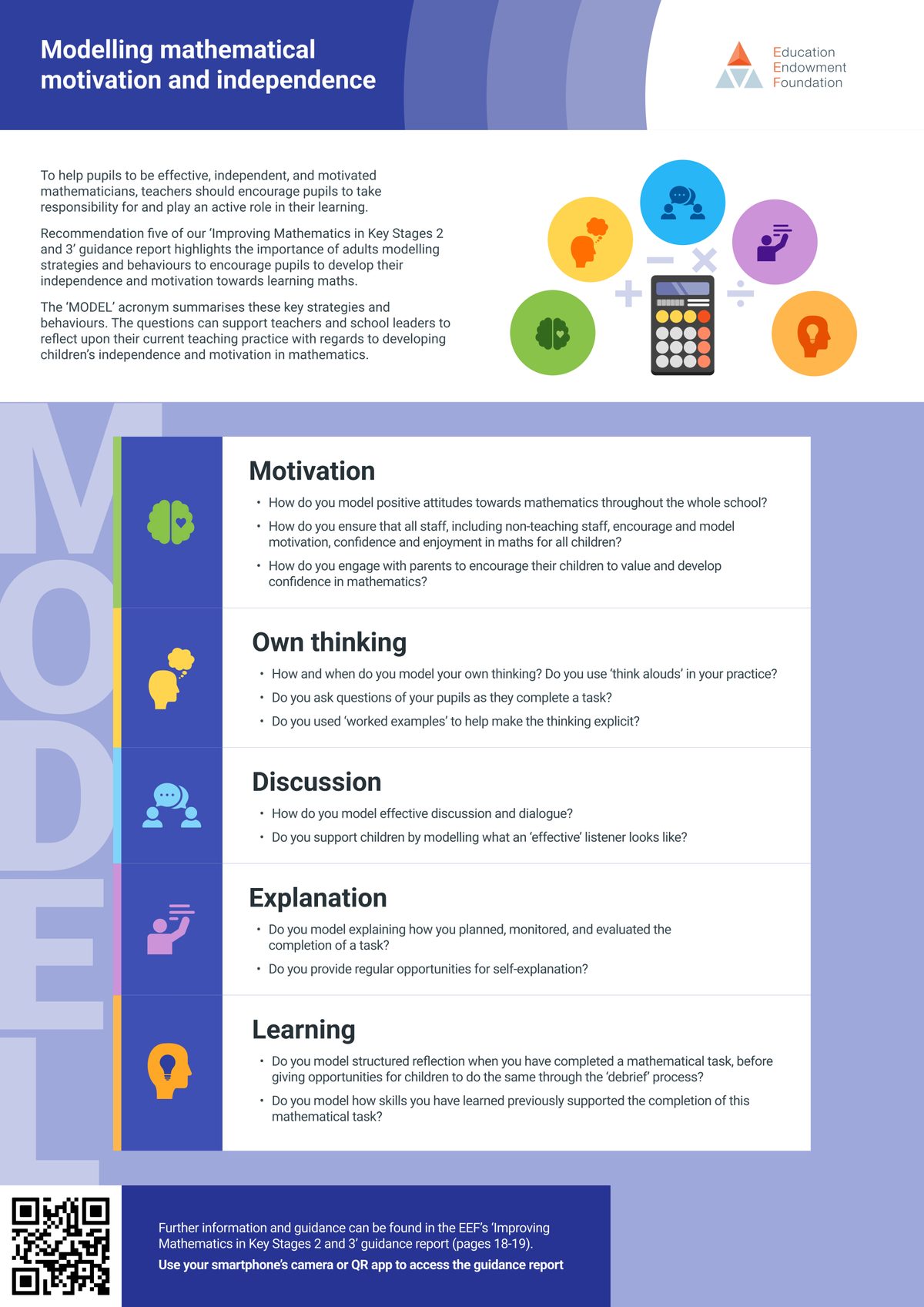
“Ooh, I love these types of questions. Let me read it to you and talk you through my own thinking. I’ll need your help along the way, so listen carefully.”
“It is an interesting question as I know that: ‘a fraction is a part of a whole and those parts need to be equal’. That’s an important stem sentence of ours, isn’t it?”
“But the parts in this whole are not equal, so that’s making this question seem a bit trickier.”
“I am going to think about three things to help me get started: What can I see? What do I already know? What have I used in the past to help me solve similar questions?”
What we say matters
As practitioners, we are role models. What we say matters. Take the above as an example.
The teacher shows enthusiasm for solving mathematical problems.
She explains why the problem might initially appear difficult, before demonstrating resilience to have a go. This models motivation to her pupils, showing them that even as the teacher, the expert, some questions are harder to solve.
She talks through her strategy for getting started, asking herself key questions and, explicitly mentioning drawing on prior learning. This also displays confidence to the pupils, as the teacher draws upon a technique that has worked in the past.
Let’s MODEL
To help pupils to be effective, independent, and motivated mathematicians, teachers should encourage pupils to take responsibility for and play an active role in their learning.
This new tool can support teachers and school leaders to reflect upon their current teaching practice with regards to developing children’s independence and motivation in mathematics.

Further reading:
Recommendation 5 of our ‘Improving Mathematics in Key Stages 2 and 3’ guidance report highlights the importance of adults modelling strategies and behaviours to encourage pupils to develop their independence and motivation towards learning maths.
